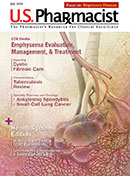The results of the global study and meta-analysis led by McMaster University researchers were published recently in the New England Journal of Medicine. Pantoprazole, the drug used in the study, is widely available and primarily used to treat heartburn caused by gastroesophageal reflux disease (GERD).
“This is the largest randomized trial on this topic in the world, led by Canada. Physicians, nurses, and pharmacists working in the ICU setting will use this information in practice right away, and the trial results and the updated meta-analysis will be incorporated into international practice guidelines,” said lead author and principal investigator Deborah Cook, MD, a professor in the Department of Medicine at McMaster University.
The study sought to determine whether PPIs are beneficial or harmful for stress ulcer prophylaxis in critically ill patients undergoing invasive ventilation.
For the international, randomized trial, researchers assigned critically ill adults who were undergoing invasive ventilation to receive IV pantoprazole (at a dosage of 40 mg daily) or matching placebo. The primary efficacy outcome was defined as clinically important upper GI bleeding in the ICU at 90 days, while the primary safety outcome was death from any cause at 90 days. Key secondary outcomes were considered to be ventilator-associated pneumonia, Clostridioides difficile infection, and patient-important bleeding.
With 4,821 patients undergoing randomization in 68 ICUs, clinically important upper GI bleeding occurred in 25 of 2,385 patients (1.0%) receiving pantoprazole and in 84 of 2,377 patients (3.5%) receiving placebo (hazard ratio, 0.30; 95% CI, 0.19-0.47; P <.001). At 90 days, death was reported in 696 of 2,390 patients (29.1%) in the pantoprazole group and in 734 of 2,379 patients (30.9%) in the placebo group (hazard ratio, 0.94; 95% CI, 0.85-1.04; P = .25).
“Patient-important bleeding was reduced with pantoprazole; all other key secondary outcomes were similar in the two groups,” the researchers pointed out, adding, “Among patients undergoing invasive ventilation, pantoprazole resulted in a significantly lower risk of clinically important upper gastrointestinal bleeding than placebo, with no significant effect on mortality.”
Background information in the article noted that critically ill patients are at risk for stress-induced GI ulceration, which might cause upper GI bleeding.
“Consequently, patients in the intensive care unit (ICU) typically receive acid suppression to prevent gastrointestinal bleeding, most commonly a proton-pump inhibitor,” the authors explained. “In a recent blinded trial, investigators found that pantoprazole lowered the risk of clinically important upper gastrointestinal bleeding as compared with placebo but increased the risk of death in the subgroup of patients with the most severe illness. An open-label, cluster-randomized trial showed fewer gastrointestinal bleeding episodes during treatment periods with proton-pump inhibitors as compared with histamine 2–receptor antagonists and also suggested an increased risk of death in the subgroup of the most severely ill patients assigned to receive proton-pump inhibitors.”
In addition, a network meta-analysis that summarized all evidence from randomized trials showed that acid suppression reduced the risk of upper GI bleeding among patients in the ICU but had no effect on mortality for any prophylactic agent. It stated that harm with PPIs could not be ruled out regarding the risks of healthcare-associated pneumonia and C difficile infection.
“Accordingly, recent guidelines have issued only weak recommendations for stress ulcer prophylaxis, especially with proton-pump inhibitors, in critically ill patients at high risk for bleeding and particularly in those with sepsis on the basis of moderate-quality evidence,” according to the researchers in the recent study, the Reevaluating the Inhibition of Stress Erosions trial.
The content contained in this article is for informational purposes only. The content is not intended to be a substitute for professional advice. Reliance on any information provided in this article is solely at your own risk.






